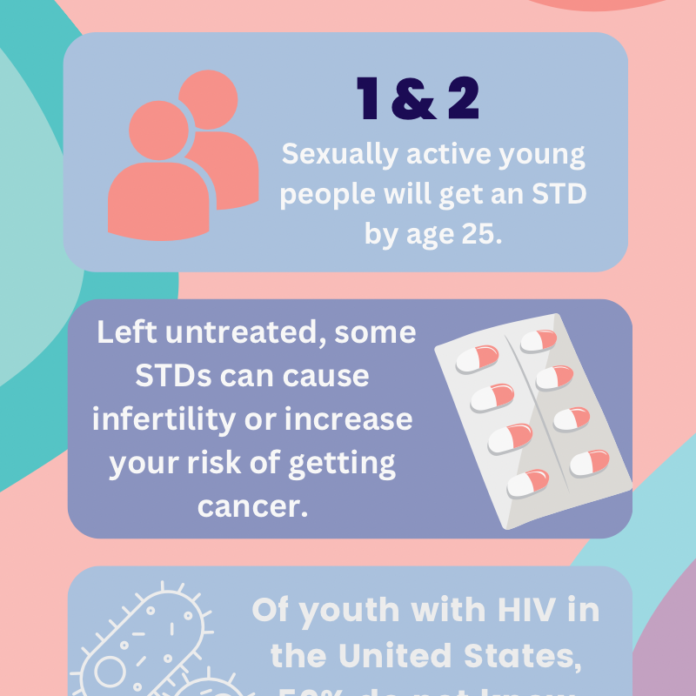In Missouri, sex education is not required to be taught, but the curriculum for sex education is based on abstinence due to bill 170.015.
The bill states: “Present abstinence from sexual activity as the preferred choice of behavior in relation to all sexual activity for unmarried pupils because it is the only method that is one hundred percent effective in preventing pregnancy, sexually transmitted diseases, and the emotional trauma associated with adolescent sexual activity.”
Missouri does, however, require health education — which involves discussing human immunodeficiency virus (HIV)/acquired immunodeficiency syndrome (AIDS) prevention education — beginning in elementary school and continued through high school.
Because the LSR7 district does teach sex education in their health curriculum, they have to abide by specific requirements relating to the bill.
Some of these requirements include: presenting students with the latest medically factual information, discussion of the possible emotional and psychological consequences of preadolescent and adolescent sexual activity, stress that sexually transmitted diseases are serious and possible, health hazards of sexual activity, teaching skills of conflict management, personal responsibility, and positive self-esteem through discussion and role-playing at appropriate grade levels to emphasize that the pupil has the power to control personal behavior and many more.
Health teacher Chris Barrows said, “We are coming from the perspective of avoiding disease and pregnancy. Abstinence is the only 100 percent method that will avoid those situations, but we also live in the real world, and we understand that not everybody will practice abstinence.”
LSR7 Executive Director of Curriculum, of 14 years, Eric Flack said he has experienced many different perspectives relating to the Sex Education curriculum.
“Prior to me getting into this position, we had a large community group come together, which included the ministerial alliance, parents, students, teachers, administrators come together to figure out what curriculum would be best,” Flack said.
Along with teaching students about different STDs and contraceptives, the LSR7 curriculum also discusses situations like consent, parenting impacting family and societal perspectives, and sexual harassment. Therefore, students can learn the different terminology that is out there.
“I think it’s important for us to talk about sex education; it doesn’t get covered in all homes. Historically, until it was taught in schools consistently, the message that may have been at home was inconsistent. Now, the presented ideas are factual and medical, so if the parents want to add to that at home, they are welcome to do so,” LSR7 District Chair of Health at LSR7 Steve Taylor said.
“We teach about contraception, with abstinence still being the preferred choice, but I think we would still teach abstinence to some extent even if it weren’t required by Missouri law,” Taylor said.
Even though our curriculum is based on abstinence, teachers understand that, ultimately, the decisions are up to the student.
“I think it important to be as honest as we can be in a school setting and that the students just have as much information as possible to make the best decision for themselves. We want to help kids to remain healthy and safe,” Barrows said.















